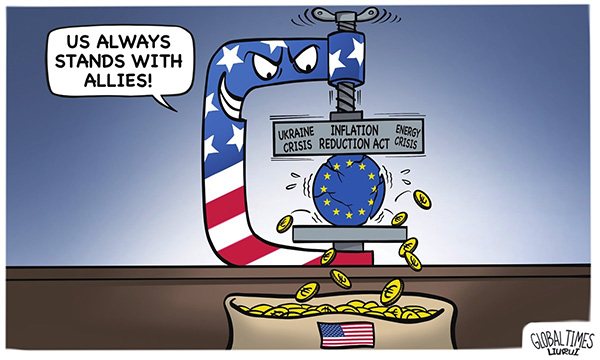
European officials are trying to rally support from member states as they brace for President Donald Trump to play on their divisions to force through his “America First” agenda, Bloomberg notes.
The European Commission, the EU’s executive arm, urged member states in a private meeting last week to remain united, with some comparing the situation to the Brexit negotiations, according to people familiar with the discussion. Back then, the UK tried to undercut the bloc’s strength by seeking bilateral deals with individual countries.
Leaders including Germany’s Olaf Scholz, France’s Emmanuel Macron and Denmark’s Mette Frederiksen have jetted across the continent since Trump’s inauguration to discuss how to deal with risks posed by the new administration in Washington.
And this couldn’t come at a worse time for the EU which is fighting from a position of weakness, with the bloc suffering from a deepening economic malaise and political fragmentation paralyzing the governments of its two largest members, Germany and France. During the discussion with the commission last week, countries expressed concern that Trump would try to divide the EU with bilateral deals or targeted tariffs.
“During Brexit, Europe had the upper hand,” Alicia García-Herrero, a senior fellow at the Brussels-based economic think tank Bruegel, said in an interview. “But now Europe is going to split, no doubt.”
The EU is moving quickly, as the expectation is that a new round of tariffs from the US is inevitable, and this time things will be worse than the trade fight Trump sparked in 2018, said the people, who spoke on the condition of anonymity. And while officials want to explore all avenues for cooperation, they are skeptical of the idea that they can talk Trump out of triggering a trade clash that could embroil everything from steel and cars to European tech regulations and tax policy.
Instead, the EU has prepared multiple lists of American goods to hit with its own retaliatory tariffs if Trump moves forward with levies, modeling various possibilities depending on what the initial US salvo looks like, the people said. But this time around, the EU has devoted more time to prepare a response and its list of targets is much bigger.
Trump vowed that he would enact across-the-board tariffs that are “much bigger” than 2.5%, and singled out the steel and aluminum sectors, which he targeted with duties during his last term.
Speaking to the World Economic Forum in Davos, Switzerland, last week, the US president said that “the EU treats us very, very unfairly, very badly.” Europe has also been shaken by Trump’s insistence that he wants to take over Greenland for security reasons, and has refused to rule out using force.
The EU needs to “use this time to prepare, either for a discussion or for retaliation,” Arancha González Laya, dean of the Paris School of International Affairs at Sciences Po, said in an interview. “We should remain united, because given integration of the European economy, tariffs on one member states is tariffs on the EU as a whole.”
“Our first priority will be to engage early, discuss common interests, and be ready to negotiate,” Commission President Ursula von der Leyen said in Davos last week. “We will be pragmatic, but we will always stand by our principles. To protect our interests and uphold our values – that is the European way.”
“What Europe will do is to negotiate, it cannot do any other thing,” Bruegel’s García-Herrero said. “I see a very difficult horizon for Europe, and I do see some US tariffs on Europe, but it would be only on some specific products.”
And the timing is very difficult for the EU. Germany’s Scholz is about to be ousted in snap elections on Feb. 23 and in France, Macron is a lame-duck president who is consumed with trying to pass a budget while keeping the far-right leader Marine Le Pen out of power.
Last year, former European Central Bank President Mario Draghi warned of a “slow agony” in the bloc if member states failed to act quickly to boost the region’s productivity with additional investments. He added that this failure would make the EU less competitive with the US and China.
“The foundations on which we built are now being shaken,” Draghi said in the report he presented to the EU. “This is an existential challenge.” Macron put it in starker terms, saying “the EU could die” if it continues to follow its “classical agenda.”
read more in our Telegram-channel https://t.me/The_International_Affairs

 9:33 02.02.2025 •
9:33 02.02.2025 •






















